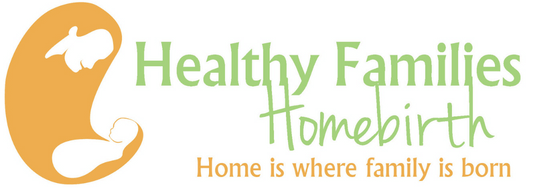

PHONE
303-718-1554
cheryl.furer@msn.com
OPENING HOURS
By Appointment Only
Menu

Prenatal supplements: Generally, I encourage all women, especially pregnant women, and men to take a supplement. Even with the best diet, the nutrition found in food is highly dependent on the soil quality.
How often a supplement is taken can vary. I believe that supplements shouldn’t be taken every day. Giving your body a rest for a day or two to process the nutrition and to use some stored vitamins is a good idea. Our bodies are highly adapted to store nutrients when they are available. Rather than constantly pounding our bodies with highly concentrated supplements, I recommend looking at the list below and work with your midwife to decide out which supplements you want to take and how often you should take them. One common way is to take the supplement Monday to Friday and taking Saturday and Sunday off from them. Some people prefer to take supplements every other day or some supplements one day and others the next day. It will vary to your preferences and needs.
Prenatal multivitamin/mineral supplement
Why take it: You’re pregnant! Usually these supplements will have a higher dose of iron, folic acid and other B-vitamins.
Food sources: Eat a wide variety of foods. Make every bite count and avoid empty calories that fill you up, but don’t provide substance.
Brands:
Iron
Why take it: You need extra support to prevent anemia; you are feeling run down and tired all the time. Remember, you blood volume increases about 50-60% in pregnancy, keeping iron levels healthy will help provide the oxygen carrying cells you need. All of the brands that are recommended below are non-constipating.
Food Sources: Blackstrap molasses; leafy green vegetables (spinach must be cooked to get iron benefits); meat, especially liver (do not start eating liver during pregnancy. If you were eating it pre pregnancy, then you can continue once a week.); whole grain or iron enriched grains. Vitamin C enhances absorption. Calcium blocks absorption.
Brands:
Calcium and Magnesium
Why take it: Calcium and magnesium are large minerals, which make it hard to create a one-aday supplement for them or to include them with a multivitamin. Magnesium deficiency is prevalent in cities across the globe. Magnesium helps with nerve function, muscle relaxation, energy production, pH balance, bones, and the body’s use and absorption of other vitamins and minerals. Calcium is important for bone health, muscle function, metabolism process, pH balance, cardiovascular health, and nerve function. With calcium being an easier mineral to get from your diet I suggest a 1 to 1 ratio of calcium to magnesium.
Food sources: Almond milk- higher in calcium than dairy products! Dairy products; Collard, turnips, and mustard greens; kale; broccoli, soybeans; and canned fish with bones.
Brands:
Essential Fatty Acids (EFAs), which includes Omega-3 and Omega-6
Why take it: A generation of diets has labeled any fat as bad fats. Now we understand that there are different types of fats. Some are essential for our well-being, some are good for us, and some should be taken in moderation. Omega-3 and Omega-6 fats must come from our diet. Our bodies do not make these fats, but need them for many functions.
Food sources: Flax seed oil; Hemp seeds; Chia seeds; eggs from chickens that have been fed Omega-3; fatty fish like herring, salmon, cod, and sardines.
Brands:
Probiotics
Why take it: Probiotics are the good bacteria that live in our gut, mouth, yoni, and on our skin. Having a good probiotic community helps keep us healthy, digest our food, and prevents overgrowth of yeast and bad bacteria. Pregnancy makes us a little more vulnerable to yeast overgrowth and slightly reduces our immune function. Replenishing our good flora regularly makes sure that we have more good bacteria available, when it is needed.
Food sources: Anything fermented: sauerkraut, kombucha, tempeh, kefir, and yogurt.
Brands:
Individual vitamins or minerals (Remember most of these are already in the multivitamin.
Be sure to talk to your midwife about why you are adding an individual supplement to
your diet)
Vitamin C: Take this when you are feeling under the weather or if you have varicose veins or hemorrhoids.
Vitamin E: Good for strengthening tissue and as an antioxidant. Be sure to get one with mixed-tocopherols.
B-complex: A supplement with the B-family. Use if there are additional stresses in your life along with a multivitamin. It could also be used instead of a multivitamin in the morning with a multi-mineral taken at night.
Vitamin D: Good for many different skin problems, boosts the immune system, and helps with bone health. Our bodies make Vitamin D when exposed to sunlight. Take into consideration the amount in a multivitamin, the amount in a calcium supplement, the weather/season where you live, and how much sun exposure you are currently getting.
Fiber: Found in abundance in plant foods. If more is needed than what is coming from the diet, then add ground flax seeds to your food or look for one of the Renew Life brand of fiber supplements.
Zinc: Another supplement to consider if you are feeling under the weather or often exposed to un-well people or lots of germs. This supplement is especially good for the rapidly growing cells in your body and your fetus.
***This is general information. Please speak to your health care provider about your unique health needs.

“I believe in continuity of care, which means that as your midwife, I’m here to support you throughout your pregnancy, birth, up until your baby is a toddler (really!) and beyond…”


Proud Practitioner with BeHerVillage. Create a Registry Here.
Copyright © 2022 Healthy Families Homebirth – Home is Where Family is Born | All Rights Reserved | Website by Cheryl Furer & Precy Onasa